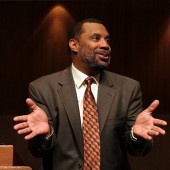Highlight: What is shaping your child’s identity?
The use of digital technology and the influence of social media has altered the way we think about our identity, community, and relationships. How can we, as parents, point our children towards their identity in Christ?
“There are a lot of parents that just feel like it’s an unavoidable wave or a train that you can’t turn back, because everyone has the device; everyone expects you to text, the schools expect you to have phones and I think that’s a real challenge.”
Dr. Felicia Wu Song believes that it’s important for parents to have conversations with their children about the use of digital technology and be wise about how much they allow their children access to.
“I think for parents, especially Christian parents, there’s space for having conversations with our children and not actually start with rules.”
Restricting or limiting your child’s screen time may produce temporary results, but it won’t address identity issues. Dr. Song encourages parents to communicate with their children about their identity and influence that digital technology has on their lives.
“As Christian parents, maybe we should start with conversations with our children about what is our identity based on? What forms our identity? What is true friendship? What is it that we’re really looking for in our conversations with our friends, or staying connected with our friends?”
“Start with a whole picture of our humanity and our identities in our relationships with each other. Fill that vision; create a vision of something that’s truly compelling, rich and thick.”
Once our vision is clear about what shapes our identity, we will gain a better perspective on technology’s place in our lives.
“Then say, ‘Ok, now we have these devices that allow these particular ways to communicate, now how does this fit? How does this fit into the vision that we’ve just talked about?'”
“Hopefully the child and the parent can together work on saying, God created us as embodied beings, we want to feel connected. We don’t want to be feel like we’re missing out, but where is our identity ultimately rooted?”
It’s important to create a vision that allows Christ to shape our identity, rather than allowing digital technology to. Dr. Song expands,
“It’s creating that larger vision that is truly compelling, that’s where the power is going to be for the parents and the child to resist the tendencies that we all have when we’re bored, sad, or feeling lonely to run to our devices and while away our time scanning through our Facebook feeds.”
Dr. Felicia Wu Song is a cultural sociologist studying the impact of digital technologies on identity, community, and relationships. She is Associate Professor and Chair of the Sociology and Anthropology Department at Westmont college. After previously teaching at Louisiana State University’s Manship School for Mass Communication, she brings a keen interest in the rapidly evolving social media industry and how the adoption of digital technology is fundamentally altering the landscape of the family, religion, advertising, social movements, and mass media.






















